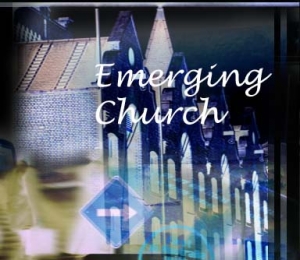A while back I read Dan Kimball’s They Like Jesus, but Not the Church. I highly recommend this book since it does reflect the thinking of a lot of people in our communities. However, I ran into a whole group of people today who don’t think much about Jesus either. They don’t like Jesus OR the church!
 My family and I attended the Scarborough Renaissance Faire today in Waxahachie, TX. We went last year, and loved it so much, we bought a season pass this year. Today was opening day.
My family and I attended the Scarborough Renaissance Faire today in Waxahachie, TX. We went last year, and loved it so much, we bought a season pass this year. Today was opening day.
One of the things that amazed me last year, and was impressed upon me again today, is the amazing community of this place. I have never, in my entire life, witnessed such a close-knit and fun-loving community as I have seen at this Faire. I ache to find a group of believers that can even come close to such a sense of community as this. They are an odd bunch of people, with strange clothing, behaviors, and language, but they all love each other and welcome everybody, even those who are very different from them with wide open arms. The church has a lot to learn in this area.
Anyway, as we were strolling around, taking it all in, we came upon a certain vendor booth where they were selling juggling sticks. I have always been amazed by this, so stood there watching. One of the stick twirlers (Lance), came over and offered to teach my whole family how to do it. As we learned, we talked.
He soon found out I was a pastor, and immediately began calling me “Pastor Jeremy.” As we talked, it turned out that he has a pretty pessimistic view of the future of humanity. I said, “I don’t know… I’m pretty hopeful.”
He said, “Why? What is your hope in?”
You can’t ask for a better opening than that, so I said, “My hope is in Jesus.”
He looked at me like I was crazy. “Jesus!? Yeshua the Carpenter? That Jesus? You hope in him? How can a dead guy help us today?”
I decided to not get into the resurrection yet, and so said, “Well, as people believe in Him for eternal life, and live their lives according to His example and teachings, their lives are changed, and whole communities and even countries can be changed for the better.”
He said, “Who sold you that lie? I have never met a single person whose life was significantly changed for the better because they followed the teachings of Jesus. Jesus was a fraud, and so is the Bible, and so are his followers.”
I was astonished. He has been living in the United States his entire life, and has never met anybody who he thought had been positively influenced by Jesus! So I asked him what his hope was in, and we talked for about another 20 minutes or so about his lifelong search for truth which culminated in discovering the Mayan seven-fold spirit agreement and how, like trees, we can dig our spirits deep into the earth, and throw the energy up into the atmosphere.
I really didn’t understand most of what he was talking about.
He said he learned all this from his spiritual adviser/babysitter named Merril. I also met Merril, who hasn’t cut his hair in 38 years, is missing most of his teeth, and talks a lot about Mayan calendars and spiritual auras.
Lance gave me the name of a free online movie to watch which he said would open my eyes. I have already watched the first 15 minutes and am excited to watch the rest. After I watch it, I’ll make a blog post about it and tell you what what movie it is. I hope that by respecting him and his beliefs, and by watching this movie, he might be open to talking more about Jesus next week when we go back to the Faire.
As I think over my conversation with him today, and after watching only 15 minutes of the movie, I have two questions I want to ask him. First, I want to ask him why he dislikes Jesus. I imagine that the Jesus he dislikes is the Jesus of religion, not Jesus of Scripture. There is a vast difference between the two.
If this turns out to be the case (that he has a skewed view of Jesus), then I want to ask him if, in his lifelong quest for truth, he has ever read about Jesus from Scripture, rather than just hearing about Jesus from others.
Anyway, I hope to build a friendship with him over the next six weeks, which I hope will last for many years, and maybe allow our family to become friends with others at the Faire. These people are some of the most amazing people I’ve ever met in my life! I wonder if they need a Faire Friar…




 Some days, I’m ashamed to be a Christian.
Some days, I’m ashamed to be a Christian.
 Do you have to believe that Jesus is God in order to receive eternal life? Some people think so because of what John says in John 20:31.
Do you have to believe that Jesus is God in order to receive eternal life? Some people think so because of what John says in John 20:31.

 I indicated in a
I indicated in a 
 The beginning of the service was announced by a funny little video which I won’t try to explain. The welcome was given by a young guy who explained that he was now happy in life again because he got a new iPhone. He was one of the first people in the country to get the iPhone on opening weekend, but the first day he had it, he went swimming with it for 20 minutes, and found out it wasn’t waterproof. So apparently, a week earlier in church he was pretty depressed because he had plunked down $600 for an iPhone and barely even got to show it off. Anyway, he took the phone into an Apple store and told them it was “broken” and they gave him a brand new one, no questions asked. So now life was good again.
The beginning of the service was announced by a funny little video which I won’t try to explain. The welcome was given by a young guy who explained that he was now happy in life again because he got a new iPhone. He was one of the first people in the country to get the iPhone on opening weekend, but the first day he had it, he went swimming with it for 20 minutes, and found out it wasn’t waterproof. So apparently, a week earlier in church he was pretty depressed because he had plunked down $600 for an iPhone and barely even got to show it off. Anyway, he took the phone into an Apple store and told them it was “broken” and they gave him a brand new one, no questions asked. So now life was good again.
